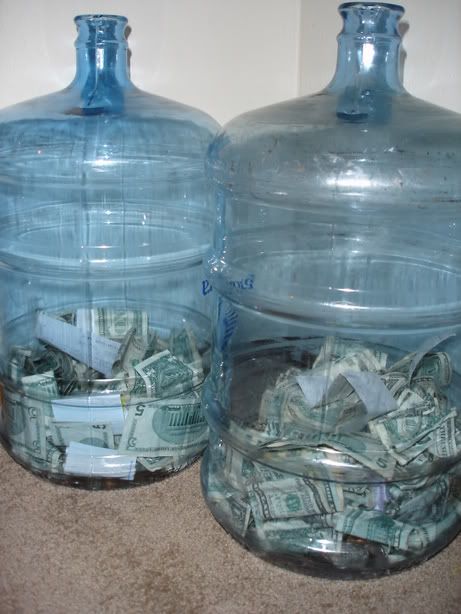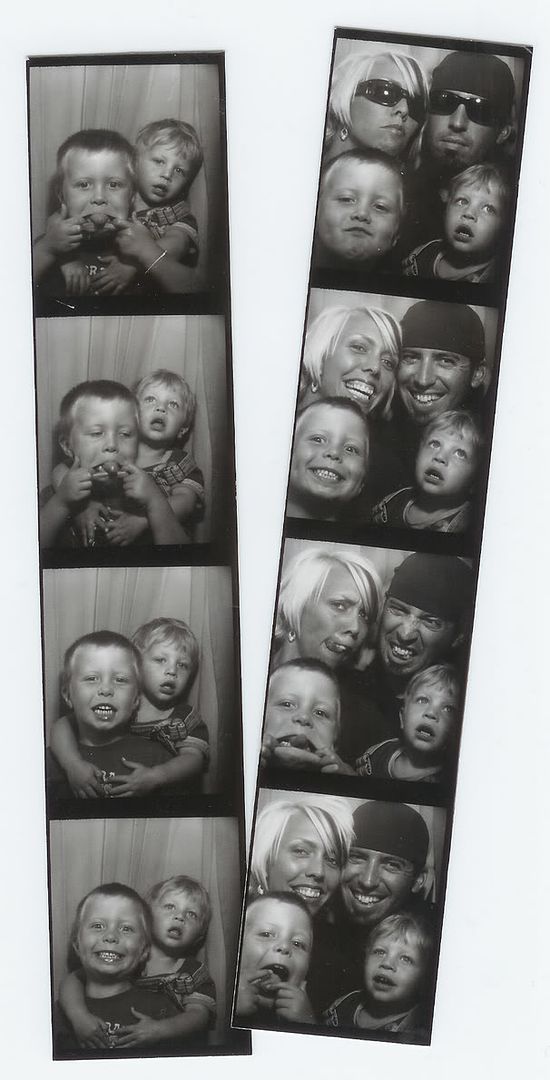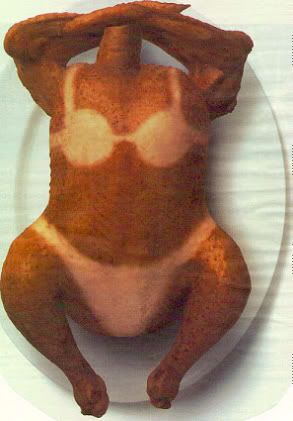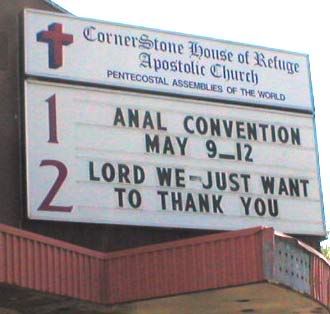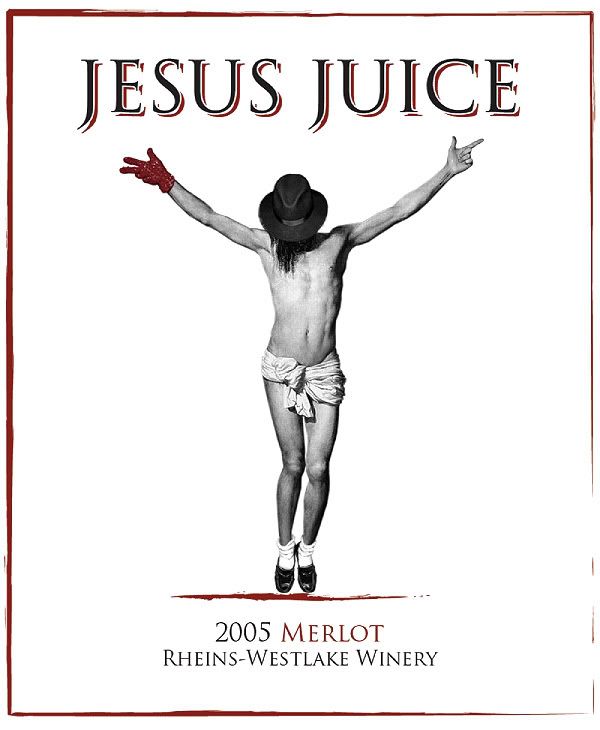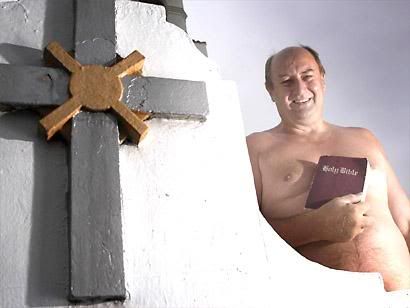
In the current issue of Rolling Stone there is an interview with U2 lead singer/activist Bono. It’s a fascinating read, and shows some great insight into this mans spiritual life and his views on modern christianity. Here’s a small excerpt from the article:
Soon after starting the band you joined a Bible-study group -- you and Larry and Edge -- called the Shalom. What brought that on?
We were doing street theater in Dublin, and we met some people who were madder than us. They were a kind of inner-city group living life like it was the first century A.D.
They were expectant of signs and wonders; lived a kind of early-church religion. It was a commune. People who had cash shared it. They were passionate, and they were funny, and they seemed to have no material desires. Their teaching of the Scriptures reminded me of those people whom I'd heard as a youngster with Guggi. I realize now, looking back, that it was just insatiable intellectual curiosity.
But it got a little too intense, as it always does; it became a bit of a holy huddle. And these people -- who are full of inspirational teaching and great ideas -- they pretended that our dress, the way we looked, didn't bother them. But very soon it appeared that was not the case. They started asking questions about the music we were listening to. Why are you wearing earrings? Why do you have a mohawk?
How did you end up leaving that?
I think we just went on tour.
And forgot to come back?
Well, we'd visit. If you were going to study the teaching, it demanded a rejection of the world. Even then we understood that you can't escape the world, wherever you go. Least of all in very intense religious meetings -- which can be more corrupt and more bent, in terms of the pressures they exert on people, than the outside forces.
What draws you so deeply to Martin Luther King?
So now -- cut to 1980. Irish rock group, who've been through the fire of a certain kind of revival, a Christian-type revival, go to America. Turn on the TV the night you arrive, and there's all these people talking from the Scriptures. But they're quite obviously raving lunatics.
Suddenly you go, what's this? And you change the channel. There's another one. You change the channel, and there's another secondhand-car salesman. You think, oh, my God. But their words sound so similar . . . to the words out of our mouths.
So what happens? You learn to shut up. You say, whoa, what's this going on? You go oddly still and quiet. If you talk like this around here, people will think you're one of those. And you realize that these are the traders -- as in t-r-a-d-e-r-s -- in the temple.
Until you get to the black church, and you see that they have similar ideas. But their religion seems to be involved in social justice; the fight for equality. And a Rolling Stone journalist, Jim Henke, who has believed in you more than anyone up to this point, hands you a book called Let the Trumpet Sound -- which is the biography of Dr. King. And it just changes your life.
Even though I'm a believer, I still find it really hard to be around other believers: They make me nervous, they make me twitch. I sorta watch my back. Except when I'm with the black church. I feel relaxed, feel at home; my kids -- I can take them there; there's singing, there's music.
What is your religious belief today? What is your concept of God?
If I could put it simply, I would say that I believe there's a force of love and logic in the world, a force of love and logic behind the universe. And I believe in the poetic genius of a creator who would choose to express such unfathomable power as a child born in "straw poverty"; i.e., the story of Christ makes sense to me.
How does it make sense?
As an artist, I see the poetry of it. It's so brilliant. That this scale of creation, and the unfathomable universe, should describe itself in such vulnerability, as a child. That is mind-blowing to me. I guess that would make me a Christian. Although I don't use the label, because it is so very hard to live up to. I feel like I'm the worst example of it, so I just kinda keep my mouth shut.
Do you pray or have any religious practices?
I try to take time out of every day, in prayer and meditation. I feel as at home in a Catholic cathedral as in a revival tent. I also have enormous respect for my friends who are atheists, most of whom are, and the courage it takes not to believe.
How big an influence is the Bible on your songwriting? How much do you draw on its imagery, its ideas?
It sustains me.
As a belief, or as a literary thing?
As a belief. These are hard subjects to talk about because you can sound like such a dickhead. I'm the sort of character who's got to have an anchor. I want to be around immovable objects. I want to build my house on a rock, because even if the waters are not high around the house, I'm going to bring back a storm. I have that in me. So it's sort of underpinning for me.
I don't read it as a historical book. I don't read it as, "Well, that's good advice." I let it speak to me in other ways. They call it the rhema. It's a hard word to translate from Greek, but it sort of means it changes in the moment you're in. It seems to do that for me.
You're saying it's a living thing?
It's a plumb line for me. In the Scriptures, it is self-described as a clear pool that you can see yourself in, to see where you're at, if you're still enough. I'm writing a poem at the moment called "The Pilgrim and His Lack of Progress." I'm not sure I'm the best advertisement for this stuff.
What do you think of the evangelical movement that we see in the United States now?
I'm wary of faith outside of actions. I'm wary of religiosity that ignores the wider world. In 2001, only seven percent of evangelicals polled felt it incumbent upon themselves to respond to the AIDS emergency. This appalled me. I asked for meetings with as many church leaders as would have them with me. I used my background in the Scriptures to speak to them about the so-called leprosy of our age and how I felt Christ would respond to it. And they had better get to it quickly, or they would be very much on the other side of what God was doing in the world.
Amazingly, they did respond. I couldn't believe it. It almost ruined it for me -- 'cause I love giving out about the church and Christianity. But they actually came through: Jesse Helms, you know, publicly repents for the way he thinks about AIDS.
I've started to see this community as a real resource in America. I have described them as "narrow-minded idealists." If you can widen the aperture of that idealism, these people want to change the world. They want their lives to have meaning.
CLICK HERE to read more of the interview at rollingstone.comCLICK HERE to subscribe to the podcast of the audio from the actual interview

